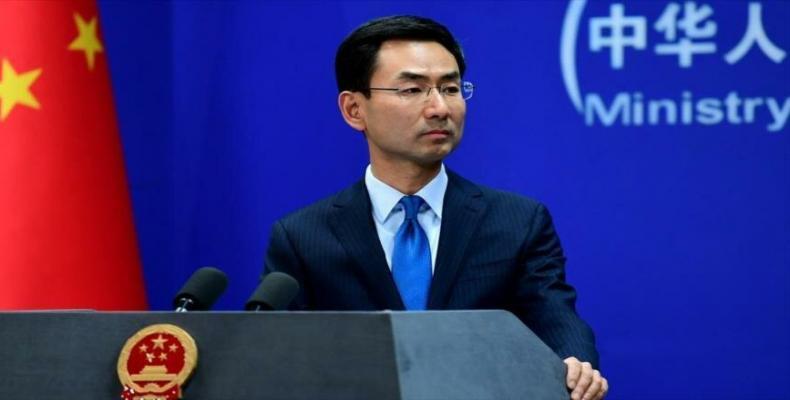Beijing, June 6 (RHC)-- China has warned its citizens that they face various forms of harassment by law enforcement agencies in the United States. Speaking at a regular press briefing in Beijing on Tuesday, Foreign Ministry spokesman Geng Shuang said that U.S. law enforcement agencies had “repeatedly” used methods such as immigration and on-site interviews to “harass” Chinese nationals in the United States.
The spokesman also called on Chinese-funded institutions in the U.S. to be cautious and “increase awareness and strengthen preventive measures.”
“At the same time, I want to emphasize China holds an open attitude toward normal people-to-people exchanges and contacts between our two countries, but such exchanges and contact must be based on mutual respect,” he said. “This is a response to the circumstances; China would not have done this if it was unnecessary.”
Also on Tuesday, China’s Ministry of Culture and Tourism issued a travel alert for the U.S., noting the high frequency of shootings, robberies and theft in the country. “Recently, shootings, robberies, and thefts have occurred frequently in the United States,” the ministry said, urging Chinese tourists to “fully assess the risk” and “improve their awareness of safety and security.”
Amid tensions with the US, China warns students and academics about “risks” of studying in the United States, informing them of a surge in visa denials and delays. Some 360,000 Chinese nationals study in the U.S., generating about $14 billion of economic activity annually, most of it in tuition and other fees.
According to the U.S. National Travel and Tourism Office, three million Chinese visited the United States last year, down from 3.2 million in 2017. They represent the fifth biggest group of foreign visitors, spending $36.4 billion last year.
The warnings came weeks after a group of Republicans in U.S. Congress introduced legislation intended to prohibit anyone employed or sponsored by the Chinese military from receiving student or research visas to the United States.
The development also comes as the U.S. administration of President Donald Trump has been locked in a trade war with China. Any major drop in Chinese tourism to America could cost billions to the U.S. economy.


